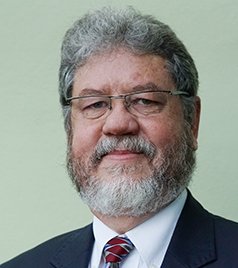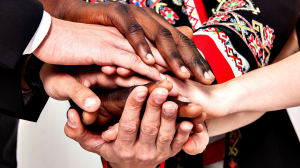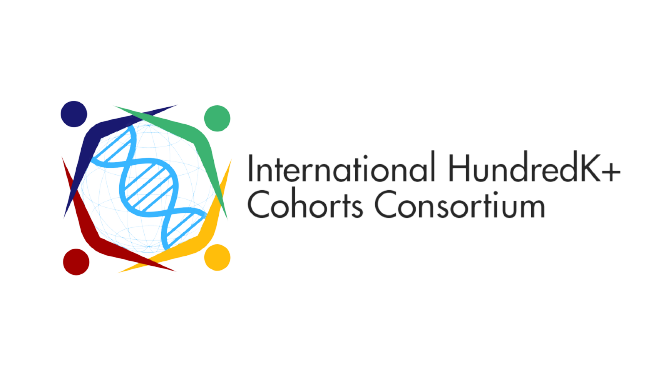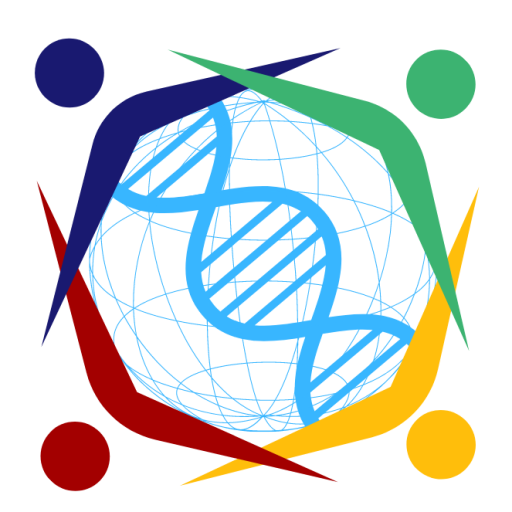in this edition
- Message from the Co-Chairs
- IHCC Featured Cohort – The Estonian Biobank
- Announcement – Launch of New Working Group: Training, Sharing and Capacity Development
- Register Now! Upcoming Educational Webinar Series – July 22nd
- Opportunities to Participate
and more!
IHCC Quarterly Newsletter
July 2021
Message from the Co-Chairs
Greetings to the IHCC Community,
Thank you for your participation and engagement in the 4th International Cohorts Summit on May 25-27!
The three days were packed with amazing presentations and interactions. We had the pleasure to listen to our Keynote speakers, Cori Bargmann, Ph.D. from the Rockefeller University and Chan Zuckerberg Initiative, Ambroise Wonkam, M.D. from the University of Capetown, Francis Collins, M.D., Ph.D. from the National Institutes of Health, and Mary De Silva, MSc, Ph.D. from the Wellcome Trust. Additionally, the IHCC-funded project leaders presented their progress and members were given the opportunity to take part in determining the future direction of IHCC by participating in the elaboration of the Working Group action plans for the coming year. Several LMIC Cohorts shared their outlooks on resource gaps and barriers during an insightful panel discussion. We ended the summit by hearing a panel of IHCC Cohort leaders and leading experts in infectious diseases discuss what they did to tackle COVID-19 challenges and how IHCC could serve as a global resource for tackling future challenges.
Recordings of the summit’s sessions are available here!
Contact information is available for those who wish to facilitate further connection and collaboration with the IHCC working groups and project leaders.
We hope you enjoyed the summit and made valuable connections. To make future events even more successful, we welcome your feedback via our post-summit survey. Thank you in advance for your participation.
We look forward to connecting again soon!
IHCC Featured Cohort: Estonian Biobank

The Estonian Biobank (Est.BB)
PI: Prof. Andres Metspalu, M.D., Ph.D.
The Estonian Biobank (Est.BB) is a population-based biobank of the Estonian Genome Center at the Institute of Genomics, University of Tartu. Est.BB an active member of the IHCC and has a current cohort size of more than 200,000 individuals. Est.BB is part of the international biobanking community and is a founding member of other consortia like international P3G and BBMRI-ERIC in the European Union. Continue reading to learn more about the activities being done by the Estonian Biobank and their participation with IHCC.
New IHCC Cohorts

We are pleased to announce and welcome the newest members of the IHCC community:
- Coronagenes – PI: Albert Tanessa from UK: The objective of the Coronagenes cohort is to Investigate changes in genes influencing the risk of COVID-19, by studying people over age 16 from everywhere in the World. Aim to recruit tens of thousands of people of multiple ethnic groups (as ethnic minorities have a disproportionate rate of adverse outcomes) in any country in the world, with the hope that a subset of them will have direct-to-consumer genotyping which they are willing to share.
- Personalized Environment and Genes Study (PEGS) – Co-PIs: Alison Motsinger-Reif and Janet Hall from North Carolina, United States: The objectives of PEGS are to investigate genetic, environmental, and interactive risk factors of various diseases to improve disease prevention and treatment.
- Generation Victoria (GenV) – PI: Melissa Wake from Australia. The major objective of GenV is to create large, parallel whole-of-state birth and parent cohorts for discovery and interventional research. It is targeting all newborns born in the state of Victoria, Australia, over a 2-year period from mid-2021 and their parents. GenV aims to generate translatable evidence (prediction, prevention, treatments, services) to improve the current and future wellbeing and health of children and adults, and to reduce future disease burden. https://genv.org.au/
- SIMPLER – PI: Karl Michaëlsson from Sweden. Simpler is a national research infrastructure with repeat questionnaire investigations, linkage to 20 different disease registers, prescription register, socioeconomic registers, a large biobank with different types of biological samples, omics data and ordinary chemical lab data with the objective to better understand the importance of different lifestyle and genetic factors for the development of late-onset diseases. https://www.simpler4health.se/
- H3Africa AWI-Gen – PI: Michele Ramsay from Africa. The AWI-Gen study aims to shed light on genetic and environmental factors that contribute to cardiometabolic diseases in Africans. https://h3africa.org/index.php/awi-gen/
- The Trans-Omics for Precision Medicine (TOPMed) – PI: Weiniu Gan from the NIH, United States. The goal of the TOPMed program is to generate scientific resources (e.g., WGS, multi-Omics, deep clinical phenotypes) that will improve the understanding of heart, lung, blood, and sleep disorders and advance precision medicine.
New Scientific Steering Committee Members
In 2020, the IHCC membership ratified our standing Charter/Membership Agreement, which provides oversight as to how we will operate as an international collaborative organization. A key component of this governance structure is the establishment and operation of a Scientific Steering Committee (SSC) in a manner that is both reflective and representative of our global community. As such, and in fulfillment of the tenets defined in the IHCC membership agreement for a full SSC contingency of 15 members, a “call for nominations” went out to our membership in the first edition of the IHCC Newsletter in March 2020. We are pleased to welcome the following members to the SSC:
- Nicky Mulder, Professor and head of the Computational Biology (CBIO) division at the University of Cape Town – Principal investigator of H3ABioNet, a Pan African bioinformatics network for H3Africa, South Africa
- Catterina Ferreccio, Deputy Director Advanced Center of Chronic Diseases (ACCDiS). Director PhD Program in Epidemiology Department of Public Health/ School of Medicine at the Pontificia Universidad Católica de Chile – Director of the MAUCO cohort, Chili
- Reza Malekzadeh, Deputy of Technology and Research at the Ministry of Health and Medical Education, Professor of Gastroenterology and Hepatology and Director of the Digestive Diseases Research Institute at the Tehran University of Medical Sciences – Director of the PERSIAN Cohort and the Golestan Cohort, Iran
- Kobus Herbst, Faculty member and the Population Science Lead at the Africa Health Research Institute and the principal investigator of its Population Intervention Program (PIP). Honorary professor at the University of Limpopo – Director of the SAPRIN cohort, South Africa
- Rahman Jamal, Professor of Paediatric Oncology and Haematology, and Molecular Biology at the UKM Medical Molecular Biology Institute (UMBI). Project Director for the Hospital Kanak-Kanak Permata UKM (HKKP-UKM) – Project Leader of The Malaysian Cohort project, Malaysia
- Michele Ramsay, Professor in the Division of Human Genetics at the National Health Laboratory Service and University of the Witwatersrand (Wits), Director of the Sydney Brenner Institute for Molecular Bioscience at the Wits University – Project Leader of the AWI-Gen Consortium Study, part of H3Africa, South Africa
- Nicki Tiffin (new Policy and System Working Group co-chair), Associate Professor at Centre for Infectious Disease Research in Africa (CIDRI) /Computational Biology Division at the University of Cape Town, South Africa
New IHCC Working Group
We are excited to announce the launch of a new working group: Training, Sharing and Capacity Development Working Group. We are also delighted with the nomination of Albert Tenesa and Paballo Chauke as co-leads.
Albert Tenesa, Professor of Quantitative Genetics at the University of Edinburgh – Co-Principal Investigator of the Coronagene cohort, UK
Paballo Chauke, Program Coordinator at the Institute of Infectious Disease and Molecular Medicine at the University of Cape Town, Bioinformatics Training and Outreach Coordinator for H3ABIONET, South Africa
As highlighted in the Strategic Plan, an objective of IHCC is to ensure inclusivity by making it possible for ALL cohorts to contribute. While the current working groups meet this objective in various ways, we felt this initiative could be further embedded in our efforts through the creation of a working group dedicated specifically to the areas of collaboration enhancement, training, education, and knowledge sharing. Thus, the Training, Sharing and Capacity Development Working Group was established.
The overall goal of this working group is to stay in tune with the needs and objectives of the other IHCC working groups in order to identify and fill in gaps related to training, sharing, and capacity development. During a breakout session as part of the ICS4 Summit, the following objectives were established which will guide the working group:
- Organize workshops, seminars, symposia, training channels
- Create a cohort curriculum (multiple modules and levels) with agreements between universities, or/and an IHCC summer school (virtual/live bootcamp) with certificate of participation.
- IHCC website visibility of existing training and educational programs and resources
- Priority content: data analysis & management, IT, Atlas, cohort design
- Partner with countries with more resources to allow access to low resources countries
- Reach out to and engage the Young Investigator community
We hope members will engage to make this working group successful in these endeavors.
Opportunity to Participate!
Join a Working group!
IHCC currently has 4 active working groups. Click on the links below to learn more about each group.
- Data Standards and Infrastructure
- Policy, System and Bio-Data Sharing
- Scientific Strategy and Cohort Enhancements
- Training, Sharing and Capacity Development (NEW)
Interested in joining a Working Group? We recently completed a 5-year strategic plan to move the IHCC forward and need your help advancing the implementation plans from each of the working groups forward to ultimately reach the IHCC vision and mission to enhance scientific understanding of the biological, environmental and genetic basis of diseases and to improve population health.
Contact ihccinfo@ihccglobal.org to join!
Upcoming IHCC Events
Educational Webinar Series: July 22 at 15:00 (3:00 PM) UTC
Tune in for Kobus Herbst’s talk: Longitudinal Population Cohorts in Africa, an historical perspective
 The talk will review the history of longitudinal population cohorts in Africa in the form of health and demographic surveillance systems, drawing from its roots in community-based primary care in the 1940’s through the early phase of HDSS as remnants of large clinical trials, through its development in the context of INDEPTH to the current state of renewed interest in large population cohorts as evidenced by the establishment of the IHCC, funders interest in an African consortium of population cohorts (APCC), or investment of some countries into networks of HDSS’s as research infrastructure (e.g, South Africa, Sierra Leone, Ethiopia).
The talk will review the history of longitudinal population cohorts in Africa in the form of health and demographic surveillance systems, drawing from its roots in community-based primary care in the 1940’s through the early phase of HDSS as remnants of large clinical trials, through its development in the context of INDEPTH to the current state of renewed interest in large population cohorts as evidenced by the establishment of the IHCC, funders interest in an African consortium of population cohorts (APCC), or investment of some countries into networks of HDSS’s as research infrastructure (e.g, South Africa, Sierra Leone, Ethiopia).
Registration for this event is required. Visit the Event Page to register now.
The monthly IHCC Educational Webinar Series is free and open to all IHCC member cohorts and others outside of the organization interested in participating. With the ultimate goal to bring cohorts together to enhance information-sharing and collaboration, this online series aims to provide a forum for cohort members to exchange scientific ideas, best practices, and lessons learned; showcase cohorts’ accomplishments, emphasizing LMICs; share international funding opportunities; and more.
Thank you to those who participated in previous Educational Webinars. The recordings are available on the event page if you didn’t have the chance to join us or would like to share them with others in your organization.
REMINDERS
Race, Ethnicity & Ancestry Survey: Share your best practices!
 Studies and research projects across the globe use different definitions and categories of race, ethnicity, and ancestry due to diverse study populations, cultural backgrounds, and researchers’ perspectives. The International HundredK+ Cohorts Consortium (IHCC) is interested in understanding the categories and labels that each cohort has used to collect race, ethnicity, ancestry, or other descent-related data. To facilitate the process, a short survey was developed by the IHCC and research collaborators at Duke University and George Washington University.
Studies and research projects across the globe use different definitions and categories of race, ethnicity, and ancestry due to diverse study populations, cultural backgrounds, and researchers’ perspectives. The International HundredK+ Cohorts Consortium (IHCC) is interested in understanding the categories and labels that each cohort has used to collect race, ethnicity, ancestry, or other descent-related data. To facilitate the process, a short survey was developed by the IHCC and research collaborators at Duke University and George Washington University.
The survey should take no more than 5 minutes to complete. Your participation is very important as it will provide us valuable information on the heterogeneity of measurements for race, ethnicity, ancestry, and other descent-related identities across the globe and help us to develop standardized measures that can be utilized by researchers in the IHCC and globally.
Thank you for your participation!
Follow Us!
Join Our Community
Not a member yet? Read our Membership Agreement and click below to join the IHCC community!
Member cohort information is posted in our Member Cohorts Database. If you’re already an IHCC member cohort, but need to update your information, you may also do so using the form below.





